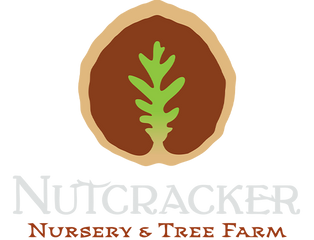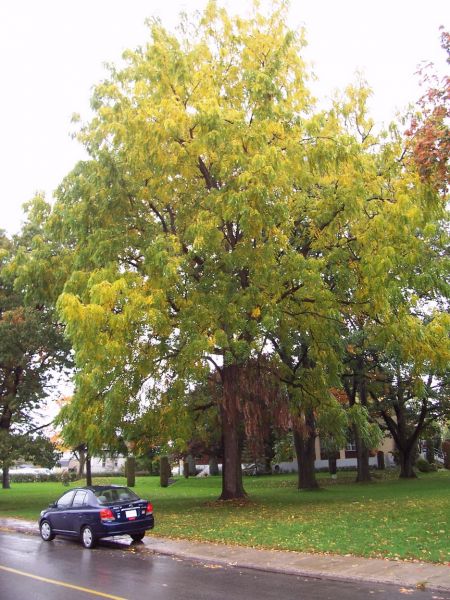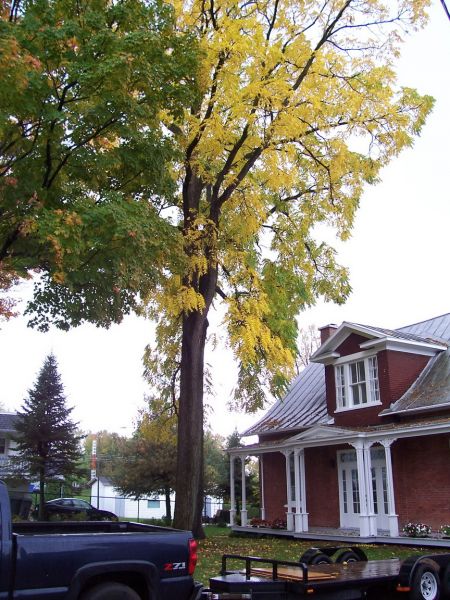Black Walnut, Juglans nigra
Shipping calculated at checkout
54 in stock
Need more? Contact us
PLEASE NOTE THAT THIS PRODUCT IS CURRENTLY IN THE FIELDS, SO DELIVERY WILL BE MADE IN FALL 2023.
Seedlings from large nuts.
The black walnut is one of the most successful edible nut trees in southern canada. It is well adapted to our winter cold, and unlike Persian walnuts, avoids late spring frosts by delaying leafing in the spring. As a result it is suited to most of Southern Quebec and Ontario. A strain of black walnut has even adapted itself to the rigors of the dry fertile prairies (zone 3) of Manitoba. More limiting than climate is the soil type and drainage conditions. Black walnut succeeds well beyond its native range, wherever pH readings are between 6 and 7. Eroded limestone soils ranging from sand to clay are ideal. Deep well-drained soils are important to proper development and growth. The black walnut is a large deciduous tree reaching heights of 30–40 m (98–131 ft). Under forest competition, it develops a tall, clear trunk; the open-grown form has a short trunk and broad crown.Even though the black walnut is well established in Ontario and we see more plantation in southern Quebec, the crop of delicious nuts it produces has not been utilized except by a few persistent foragers. The early pioneers highly valued the rich-tasting nuts and put away many sacks of them each year. Each farmstead had its orchard of fruit and nut trees to provide it with its source of winter food. Most of them all disappeared when easier cracking Persian walnuts became common in the grocery stores. With modern tree shakers, harvesters, nut hullers, crackers and sorting machines being available, it is possible to profit from the nut crop again. The industry is alive and well in Stockton, Missouri where millions of pounds of black walnuts are processed each year. The total kernel crop is marketed domestically. Almost none is left over for export.
See the nutritional facts in the PDF above Suitable for zone 4a.
Hardiness Zones
Specific port
Growth speed
Flowering period
Number of years for production
11 to 15 years



 Technical Sheet
Technical Sheet
